We Have Never Been More Inspired! Hear How DFW Grantees are Adapting to this New Environment
DFW’s grantees are on the frontlines of attempting to stem the tide of the COVID-19 pandemic in the countries where they operate. Many are supporting critical community response efforts such as providing soap and increasing access to water needed for simple handwashing, or creating safety awareness campaigns. Others are finding new and innovative ways to continue their important work.
We know many of you are interested and concerned about how our grantees are being impacted, so we have compiled some of the updates we have received over the past few weeks. As we received and read these updates, we have never been more inspired! It is truly amazing how these organizations have pivoted quickly to provide relief to impacted community members, despite facing their own challenges as a result of the pandemic.
We will continue to share grantee updates in our newsletters and on social media. Please follow us on Facebook to receive all the latest info.
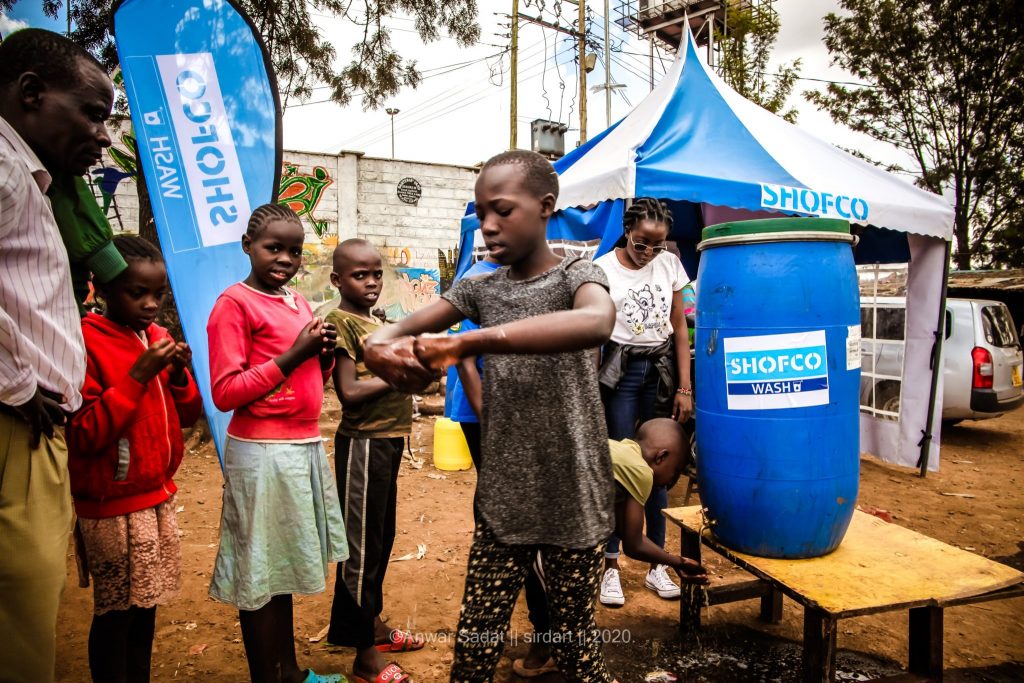
Photo of Shining Hope for Communities taken from Protecting Kenya’s Slums, an article from The Rockefeller Foundation.
Shining Hope for Communities (Kenya) – Cases of COVID-19 have been reported in Kenya’s urban slums. Mass testing has begun, and they are anticipating a sharp rise in reported cases. SHOFCO reports that anxieties are high, and panic is setting in for some families that have lost income and are running out of food and water. SHOFCO is scaling up food and clean water distributions and cash transfers to give families a small sense of security. It is also launching a scaled health outreach and screening campaign in coordination with the Nairobi County community health volunteers. SHOFCO now has 221 handwashing stations at main entry points to the slums; these stations have been used nearly 8 million times. Clinics and community health workers have screened more than 165,000 people for potential symptoms. SHOFCO is also combating misinformation through a rumor tracking platform which enables community members to report claims and rumors that SHOFCO fact checks and addresses via local radio and other communications.
Vacha Charitable Trust (India) – Vacha’s girls have taken up full responsibility for relief work and distributing grocery and Personal Protective Equipment (PPE), including sanitary pads. Only Vacha has insisted that sanitary pads be included in PPE; sanitary pads are not part of packages provided by government or other relief agencies. By taking up responsibility for this community work, the girls are increasing their skills, gaining visibility, and raising their status.
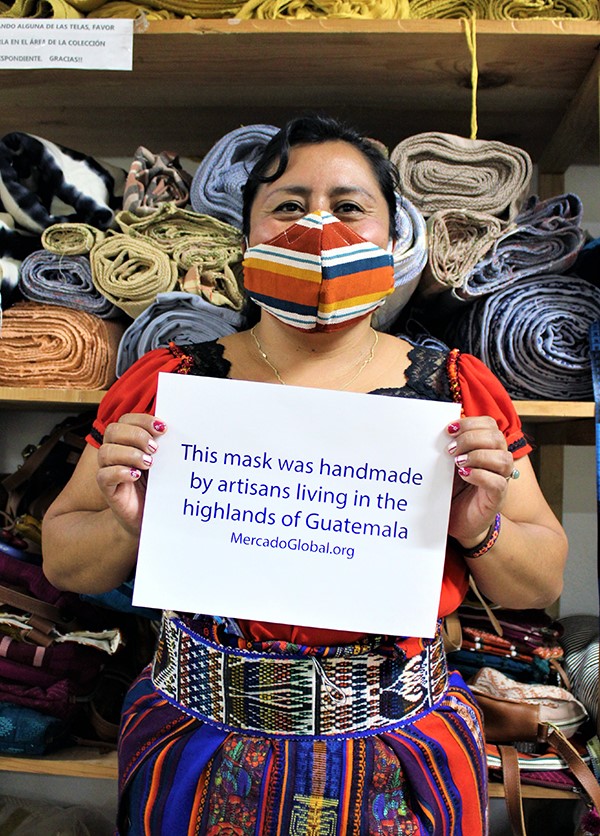
Mercado Global
Mercado Global (Guatemala) – Mercado Global is employing its indigenous artisans to make tens of thousands of masks which are being donated to facilities and healthcare professionals on the frontlines of the COVID-19 outbreak in New York City (where Mercado’s headquarters are located). It is implementing artisan trainings virtually and continuing to provide work to its artisans through several large orders for its retail partners. In anticipation of potential food shortages, it is securing food donations and planning distribution to its artisan communities.
BlinkNow (Nepal) – BlinkNow’s Children’s Home remains a loving and safe place for 54 children, and the Big Sister’s Home continues to be a safe refuge for at-risk teenage girls. Women’s Center staff are in regular contact with participants to make sure their needs are being met. BlinkNow recently reported an emergency in Nepal as over 100,000 migrants workers have finally been allowed to cross the Indian border to return home, but are now faced with unsafe conditions, hunger, dangerously high temperatures, and dehydration. BlinkNow is expanding its food bank outreach, delivering emergency water, and serving as a liaison between the local government and larger organizations with the capacity to help even more. See BlinkNow founder, Maggie Doyne, explain the situation.
Sacred Valley Health (Peru) — In the Ollantaytambo District, there is no access to ventilators or assistive breathing devices so Sacred Valley staff are coordinating with local leaders and spreading the word about disease-preventing behaviors. In a culture that is dependent on tourism, Sacred Valley is working with local nonprofit partners on the ground to assist families and communities with the support needed to survive the coronavirus and the potentially catastrophic socioeconomic impact of the lack of tourism.
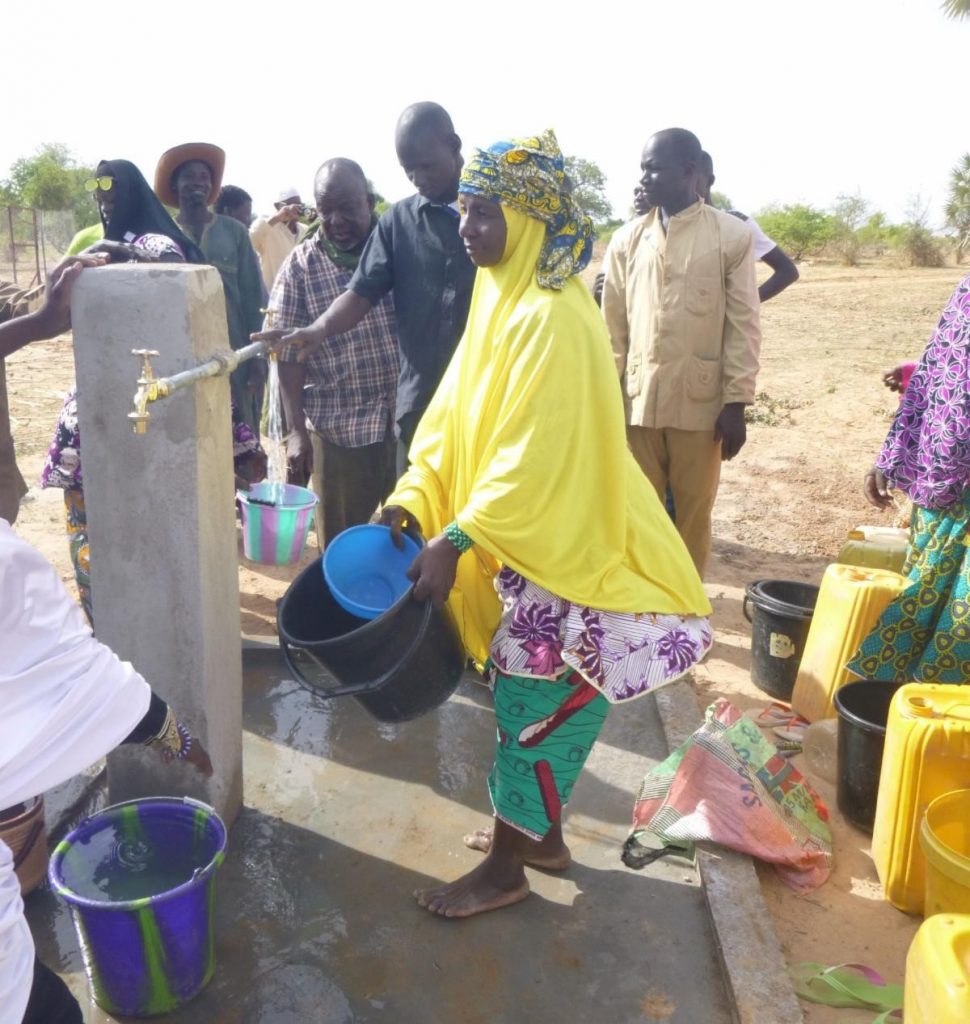
RAIN for the Sahel and Sahara
RAIN for the Sahel and Sahara (Niger) – To help its partner communities cope with the pandemic, RAIN is promoting healthy behaviors and raising funds to drill wells so people have access to clean water for handwashing. RAIN is also supporting local students to sustain their educational gains because girls, in particular, are at high risk of not returning to school after any prolonged absence.
Collateral Repair Project (Jordan) – CRP has provided emergency food aid, face masks, hand sanitizer, and cleaning supplies to refugee families. It continues to run 15 online activities and will add new activities and reach more people in June. CRP is also helping to fund urgent medical needs, like a recent, emergency eye surgery for a Syrian woman.
Gardens for Health (Rwanda) – All normal field-level activities were suspended in late April. Farm technicians are continuing to care for GHI’s demonstration farm headquarters with approval from local authorities, but are facing limited manpower and supplies such as manure for fertilizer and mulch. GHI is facilitating savings groups to promote financial security for community members and contributing nutritious foods to those who need it most.
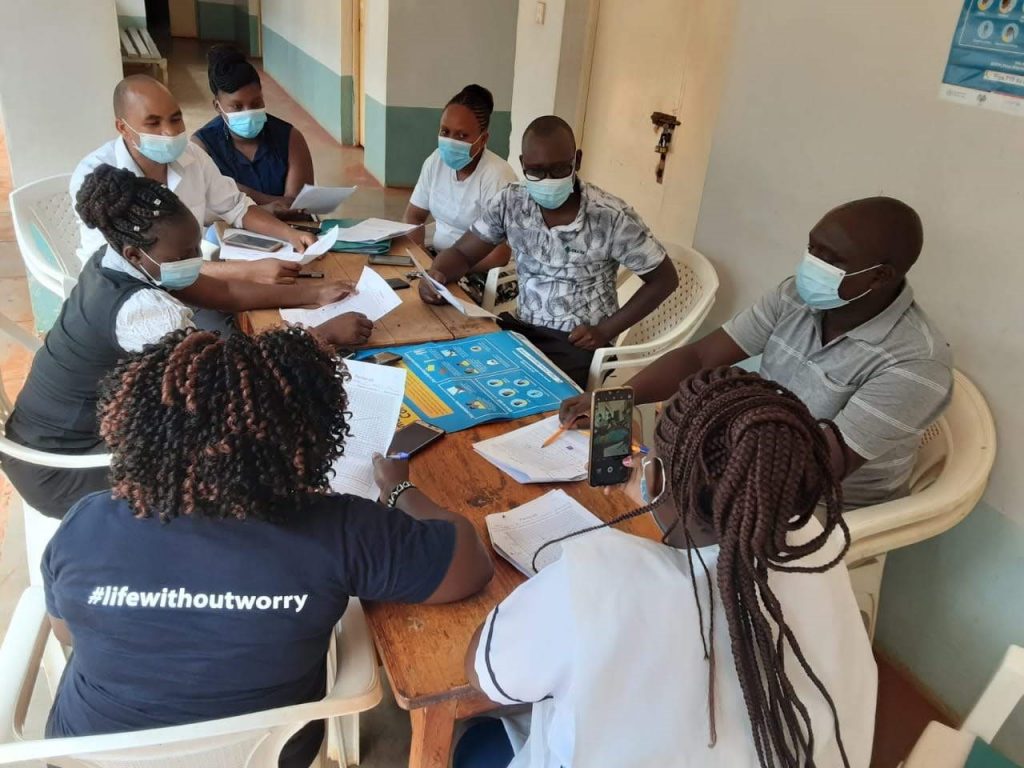
Jacaranda Health
Jacaranda Health (Kenya) – Jacaranda is expanding its digital health platform for mothers to include better referral and connections to care during COVID, including piloting “tele-triaging” screenings for pregnant women who have missed ante-natal care appointments. It has created digital dashboards for health managers to track facility-level challenges and service delivery disruptions so that they can be addressed; and it is digitizing its emergency obstetric training for frontline nurses, using a platform more tailored to remote learning.
MAIA Impact – formerly Starfish One By One (Guatemala) — MAIA’s solution during this pandemic is a girl-centered response. Girl Pioneers have remote access to learning tools, stay connected to their educators and mentors, and use their empowered voices to share their experiences with the broader community and world. According to MAIA, now is a crucial time for Girl Pioneers to exercise their resilience and leadership to reimagine what education can be for girls in rural Guatemala.
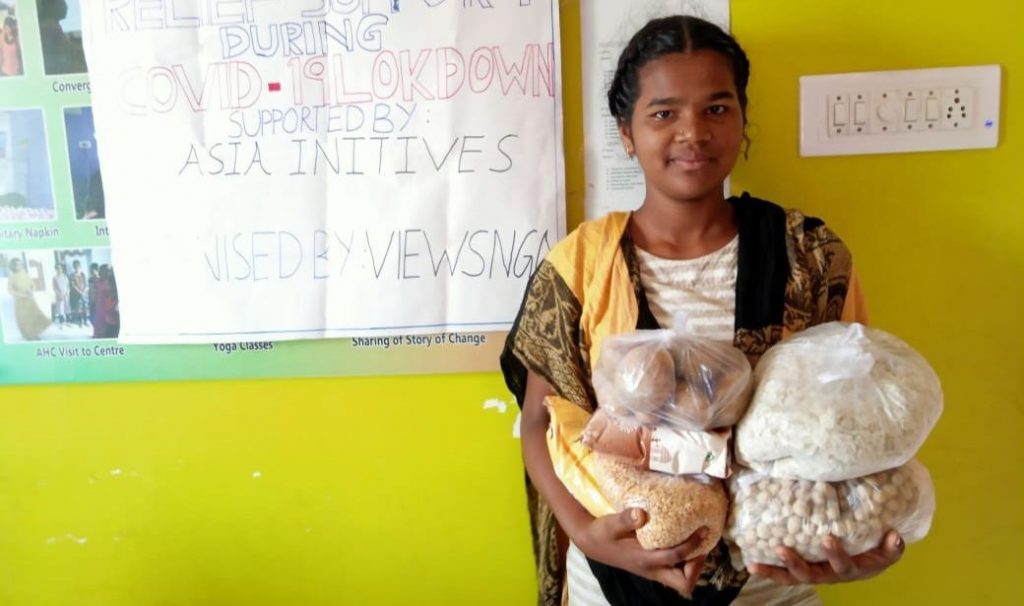
Asia Initiatives
Asia Initiatives (India) — The big crisis in India is that most daily-wage earners have lost jobs due to the lockdown, and have returned to their villages or informal settlements with no means to meet their daily needs. Asia Initiatives is providing urgent food and medical support to families. Fortunately, they have been able to continue with their Social Capital Credits (SoCCs) project, and women are redeeming the SoCCs for necessities.
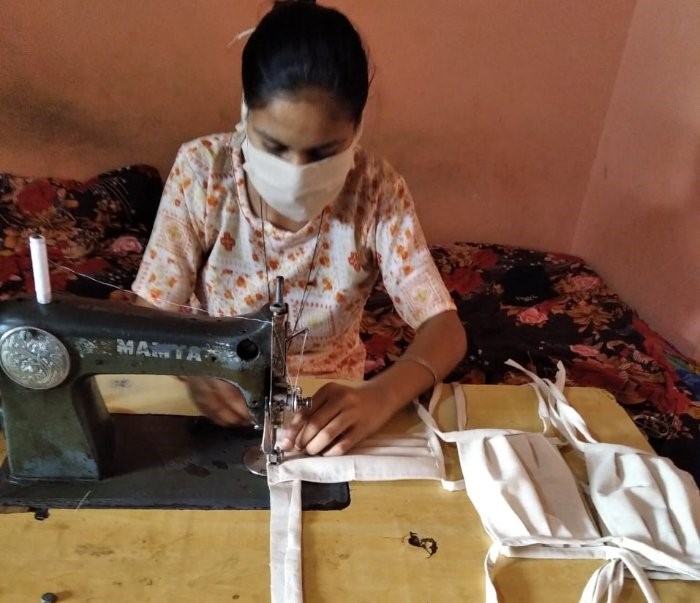
READ Global
READ Global (Bhutan) – Although centers in Nepal, India, and Bhutan are temporarily closed, the READ teams continue to find new ways to meet community needs. For example, through the Tech Age Girls program in Nepal, young women were mobilized to distribute masks to their communities, while also providing critical health and safety information about COVID-19. READ in Nepal centers have also run immunization programs for children and organized health check-ups for expecting mothers who are at greater risk if they are not able to receive medical care. Women who learned to sew at READ Centers in India are now producing thousands of fabric masks for distribution. And centers in Bhutan are working to distribute books to households so children can keep learning and reading.
WISER International (Kenya) — Students are no longer able to live and eat on campus as planned, and sources of income as well as food supplies throughout the community have dried up. WISER has committed to provide a relief package each month for three months to every student and family who needs it. Each package contains over 20lbs of shelf-stable food as well as hand soap. Read more about this campaign here.
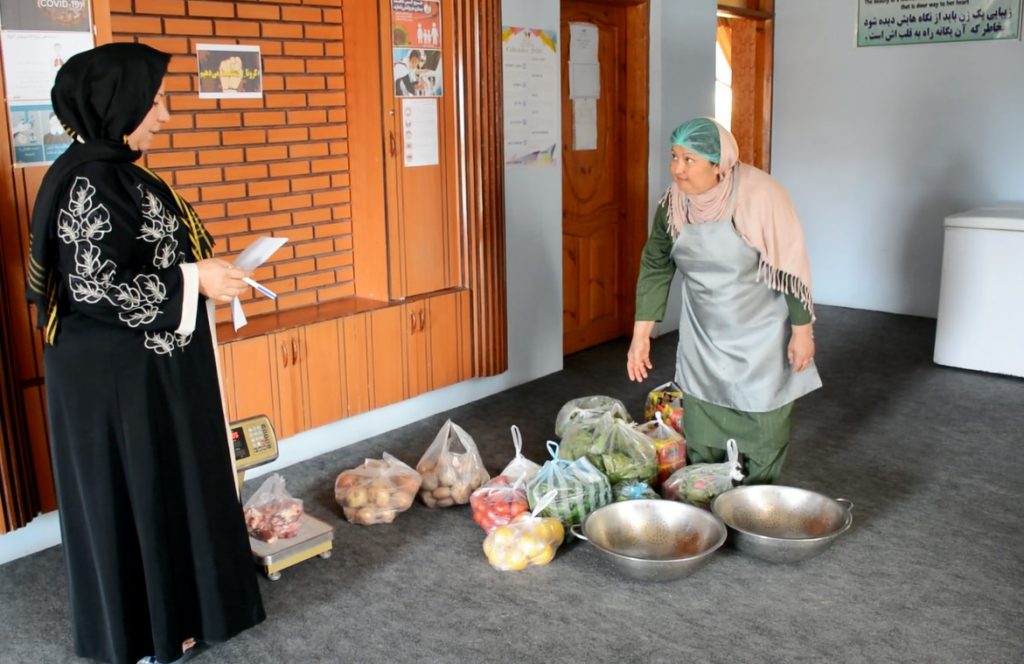
Women for Afghan Women
Women for Afghan Women (Afghanistan) – WAW reports that the pandemic has shut down the Afghan economy and the price of food and other essential supplies have sky-rocketed and are running out. Domestic violence is on the rise everywhere as the vulnerable are sheltering-in-place with their abusers. WAW centers remain open as an essential service and sanctuary for women and children who are survivors of violence and abuse and have nowhere else to turn. WAW quickly converted its vocational centers into mask-making centers for staff, clients, and for women in Afghanistan’s prisons.
Mariposa DR Foundation (Dominican Republic) – While the Mariposa Center for Girls is currently closed due to the pandemic, the organization is assisting more than 100 families of their girls in a number of ways: educating about the importance of social distancing; helping to feed some of the highest need families; offering distance learning materials and access to iPads so the girls can complete their schooling; supporting women’s health by delivering medication to HIV+ community members; making masks out of old spinnaker sails, and more!
